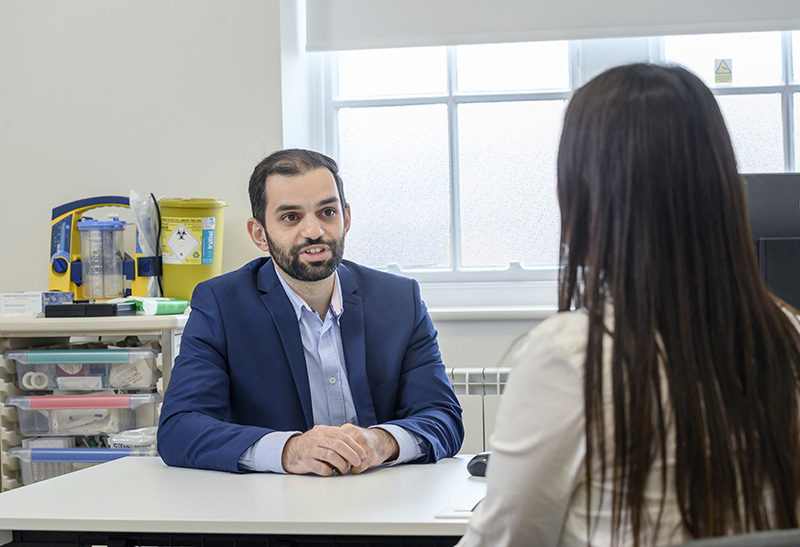Contents
Trapped Nerves

At The New Foscote Hospital, we provide comprehensive care for patients experiencing symptoms related to trapped nerves (also known as nerve compression or pinched nerves). Our experienced neurology, orthopaedic, and pain management specialists offer fast diagnosis and personalised treatment to help relieve discomfort and restore function.
What is a Trapped Nerve?
A trapped nerve occurs when surrounding tissues—such as bones, cartilage, muscles or tendons—compress a nerve. This can interfere with the nerve’s normal function and cause pain, weakness, or numbness. Commonly affected areas include the neck, back, shoulders, arms, hands, and legs.
Common Causes of Nerve Compression
Trapped nerves may result from:
- Herniated or slipped discs
- Repetitive strain injuries
- Poor posture or prolonged pressure
- Trauma or injury
- Arthritis and joint degeneration
- Bone spurs (osteophytes)
- Spinal stenosis (narrowing of the spinal canal)
Symptoms of a Trapped Nerve
The symptoms vary depending on the location of the nerve compression but may include:
- Sharp or burning pain in the affected area
- Tingling or “pins and needles” sensations
- Numbness in the limbs
- Muscle weakness
- Reduced range of motion or mobility
- Pain that worsens with movement or certain positions
Diagnosis & Assessment
At The New Foscote Hospital, we offer rapid access to diagnostic imaging, including MRI, CT scans, and nerve conduction studies, to accurately assess the source and severity of the nerve compression.
Treatment Options
Depending on the cause and severity, treatment for trapped nerves may include:
- Rest and activity modification
- Physiotherapy and rehabilitation
- Anti-inflammatory medication or steroid injections
- Nerve release or decompression surgery (if conservative treatments fail)

Book a Private Consultation in Banbury
If you’re experiencing symptoms of a trapped nerve, contact The New Foscote Hospital for a prompt and expert assessment.
5 June 2025








